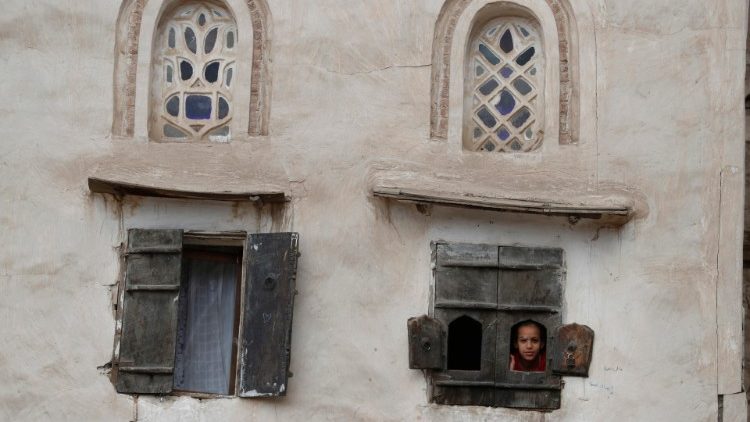The Vicar Apostolic of Southern Arabia and Yemen, Archbishop Paul Hinder, has issued an appeal for a ceasefire in Yemen where Covid-19 presents an imminent danger that threatens the already ravaged nation.
Yemen’s 30 million people have endured more than 5 years of fighting between the Saudi-led coalition and the Houthi armed group. The violence has precipitated a grave humanitarian crisis, including outbreaks of cholera, diphtheria, measles, and dengue fever.
The war in Yemen has left the nation’s health care system in tatters and relief organizations say it will be impossible to respond to coronavirus casualties in the face of fighting and armed groups continuing to block access to humanitarian aid.
“In this situation,” said Archbishop Hinder in an interview with Vatican Radio, “it seems to be more urgent than ever that the war should stop or at least that a ceasefire should be agreed upon.”
Referring to Pope Francis’ Urbi et Orbi message on Easter Sunday, in which the Pope appealed for an immediate global ceasefire, denounced those who continue to manufacture and deal in arms, and specifically mentioned the conflict in Yemen, Archbishop Hinder said he has personally had occasion, “more than once,” to speak to the Holy Father about this issue.
“It is clear that there is a real problem in arms trafficking because it is fuelled by interests,” he said, pointing out that there are people who have no interest in stopping the war.
An appeal to those in power
Archbishop Hinder said he is appealing to the conscience of the people who have the power to make decisions: “May they open themselves to this reality and look not only to economic profit.”
What’s more, he continued, “It is even more dangerous for everyone, that in times of a pandemic, the economic aspect should prevail over the human aspect of safeguarding lives,” an aspect that appears to have been “completely forgotten.”
Looking to a future in which the Pope has asked leaders to find just solutions and Christians to remain united, Hinder said that within the current climate of uncertainty, he carries within himself “the light of hope given to us by the Risen Christ” and that he will try to communicate that to others.
“Do not be afraid of tomorrow, even if we do not know what it will be. This is the reality that we have celebrated during these Easter days, especially on Holy Friday,” he said, pointing out that “We are not spared Holy Friday, we cannot go directly to Easter.”
Each one of us, Hinder explained, is called to make this passage, and in many occasions, it is a passage that lasts for well over three days.
The Christian message of hope
“This is the message that I also try to give to my people: they are anxiously waiting for tomorrow and they ask me what will happen after the pandemic… What will we do if we lose our jobs? How will we care for our families? These are the questions of many people, and not only in Yemen, which is a particularly problematic place,” he said.
Archbishop Hinder concluded quoting the words of the Pope during the Urbi et Orbi message: “This is not a time for division. May Christ our peace enlighten all who have responsibility in conflicts, that they may have the courage to support the appeal for an immediate global ceasefire in all corners of the world”.
I repeat this appeal for the whole of my region,” he said, “it is clear that we have no real power to intervene,” but we bear witness to the reality of the Risen Christ, “And it is not always easy to make an increasingly secularized world understand this message.”
By Linda Bordoni
Source: vaticannews.va






